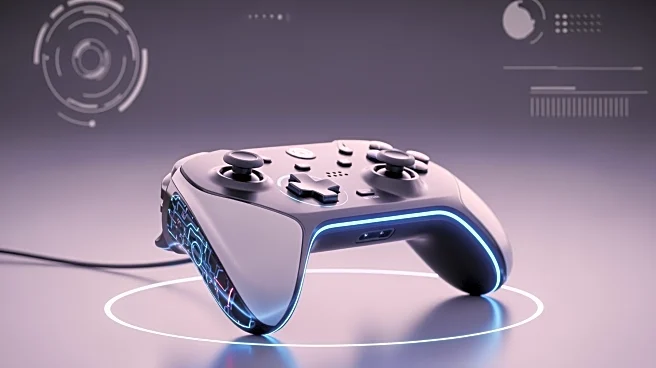What's Happening?
Yacht Club Games, the developer behind the popular Shovel Knight series, is working on a new game titled 'Mina the Hollower.' This upcoming game is inspired by classic titles like Castlevania and Bloodborne,
and notably, it will not include the parry mechanics that have become prevalent in many modern games. According to Sean Velasco, co-founder of Yacht Club Games, the decision to exclude parry mechanics is part of an effort to 'take something old and rejig it,' focusing instead on simple controls and maneuverability. The game will feature limited actions such as jumping and burrowing, aiming to create a gameplay experience reminiscent of older titles that do not rely on blocking mechanics.
Why It's Important?
The development of 'Mina the Hollower' signifies a shift in game design philosophy, moving away from the increasingly common parry mechanics seen in many contemporary games. By drawing inspiration from older games and focusing on simplicity, Yacht Club Games is catering to a niche audience that appreciates retro gaming experiences. This approach could influence other developers to explore similar design choices, potentially leading to a diversification of gameplay styles in the industry. The game's development also highlights the ongoing dialogue among game developers about the evolution of game mechanics, as they balance nostalgia with innovation.
What's Next?
The release date for 'Mina the Hollower' has not yet been announced, but interested players can add the game to their wishlist on Steam. As the game nears completion, it is likely that Yacht Club Games will release more information and possibly a demo to generate interest and gather feedback from the gaming community. The reception of this game could impact future projects by Yacht Club Games and other developers considering similar retro-inspired designs.
Beyond the Headlines
The decision to exclude parry mechanics in 'Mina the Hollower' may also reflect a broader cultural trend towards valuing simplicity and nostalgia in entertainment. As modern games become increasingly complex, there is a growing appreciation for games that offer straightforward, yet challenging experiences reminiscent of earlier gaming eras. This could lead to a resurgence of interest in retro gaming styles, influencing not only game design but also marketing strategies and consumer expectations.










